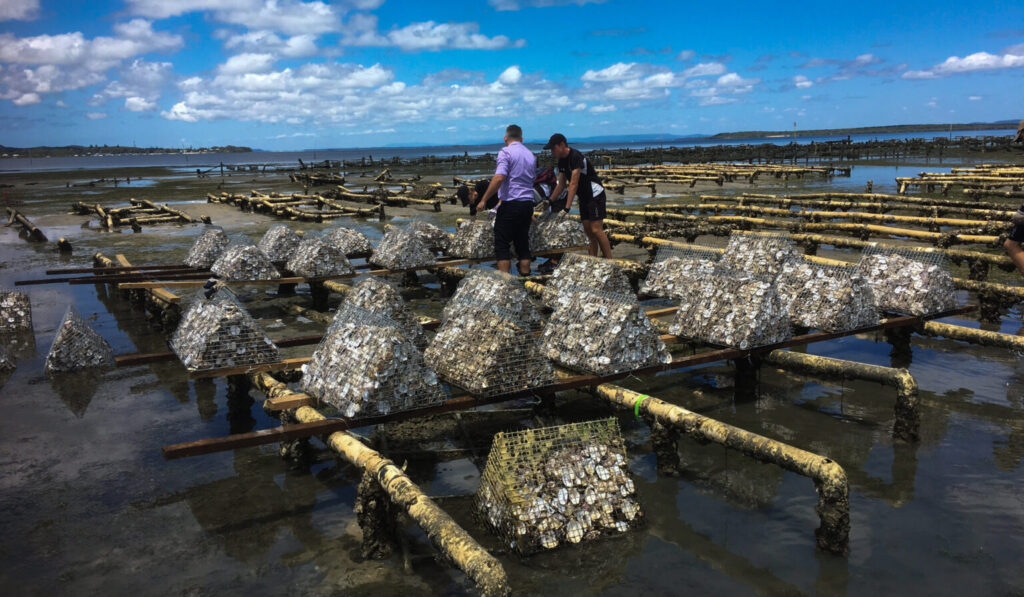
The works are printed on various materials: tempered glass, canvas, aluminum, Perspex and rocks – And are presented in exhibitions and galleries, integrated in interior and exterior design, and in underwater instalment (made of natural rocks) that helps preserve and restore the marine and coastal environment.
This project is an Envirotech student led project focused on habitat enhancement and oyster reef restoration in the Tweed River, New South Wales. The river has experienced habitat dedredgation as well as impacts from recent flooding over recent years. The project aims to install student-made artificial reef structures as well as oyster baskets to help restore biodiversity in the Tweed River.
Envirotech students have been participating in the Ozfish Shellfish Reef Restoration project in Moreton Bay. Students have helped build hundreds of oyster baskets for the project and have helped deploy them in Moreton Bay. Check out more about the project here:
Envirotech students have been working with Reef Check Australia on beach clean-ups as well as their reef surveys and some have been training to become Reef Check Ambassadors and Surveyors. Reef Check is citizen science organisation monitors and collects data on reef health around Australia as well as running awareness raising programs about Reef Conservation.
Collaborate in the conduct of research and applied projects that explore key basic principles, theories, and concepts that undergird the notion of sustainable development;
We are launching the student volunteer hub where you will get the opportunity to take part in marine conservation and restoration projects in your local area and learn practically and first hand. It is a great opportunity to develop your networks and connect with your fellow students!